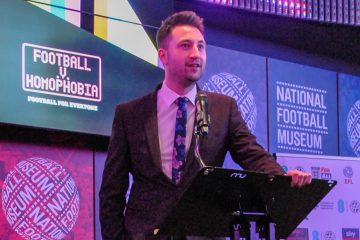‘I had allies on Team Jamaica… I hope more will speak out’: Michael Gunning and J-FLAG on Pride House Podcast

In the week of his retirement from competitive swimming, Michael Gunning joins guests from Jamaica’s foremost LGBTQ+ rights organisation J-FLAG on The Pride House Podcast; they explain how sport could be “a new frontier” in the fight for equality, if allies like those who supported Michael in private can be encouraged to lift their voices more publicly…
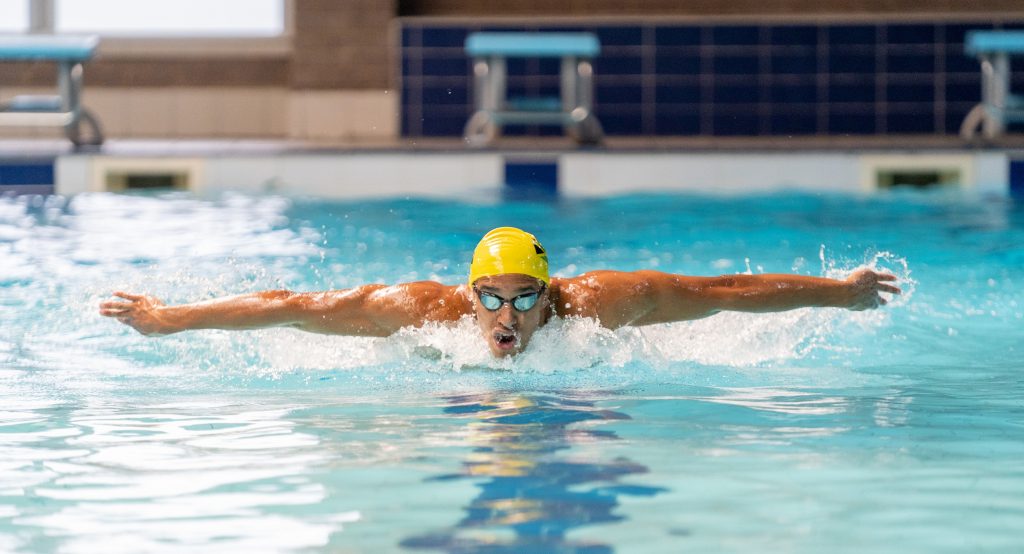
Competitively speaking, Michael Gunning is hanging up his swimming goggles – but he will continue to dive into conversations about what it means to be LGBTQ+ in Jamaica.
On Tuesday, the 28-year-old announced his retirement from the international stage having appeared at two World Championships and set several national records since switching from Team GB to represent his father’s homeland in 2017.
On the fourth episode of ‘The Pride House Podcast’, supporting Pride House Birmingham, Gunning reflects on making that decision and why he will still be using his platform to call for equality and understanding across the Commonwealth.
It was in late 2018 – via a reality TV show called ‘The Bi Life’ – that Gunning came out publicly as gay. As Jamaica’s first out athlete, he had concerns about what the reaction might be from within the island nation. However, allies made themselves known to him.
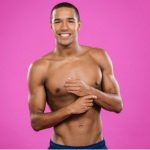
“It made me feel like I had a community,” he explains on the podcast. “It was so comforting to know that.
“There were lots of athletes and friends out in Jamaica that offered me guidance, and there was a fear around them showing publicly that they were an ally to me.
“But just being my friend showed that people on the international team were proud to know me. They forgot about my sexuality but just liked me as a person. For me, that’s still allyship.
“Hopefully when that fear goes, more people will speak out about those issues. I feel like I was really supported.”
Laying the foundations for that allyship is J-FLAG, the human rights and social justice organisation that has been fighting on behalf of LGBTQ+ Jamaicans for almost 25 years.
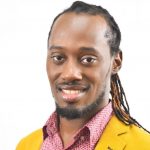
J-FLAG’s acting executive director Glenroy Murray and sports administrator Orlando Pearce are guests alongside Gunning on this episode, offering listeners an insight into their work, particularly how it relates to young people.
Murray sees sport as “a new frontier” – an area of society that has the “potential to challenge ideas of queer people’s belonging”.
He agrees that seeing more visible allyship from Jamaican athletes is the first requirement, and is able to draw upon his own experiences in advocacy to suggest how that could be developed.
“I remember the first few training sessions that J-FLAG did with healthcare workers,” says Murray. “Day one is always rough. People are a bit distrustful, because they have all these myths in their head. They don’t know what you’re here for or what you’re trying to do.
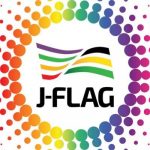
“By day two, everyone starts to lighten up and we’re having more frank and open conversations. We’re using our patois and everybody’s having a good time.
“Usually by day three, we’ll have a panel discussion where we talk about our experiences, or other community members join us and share theirs. There’s a magic that happens when Jamaicans just sit in a room and discuss their differences and try to figure each other out.
“When you see that lightbulb go off in someone’s head, that’s something refreshing. The possibility of that is enough for me.”
From a sports participation point of view, Pearce highlights the hurdles that LGBTQ+ people continue to face and why they are less likely to want to engage in physical activity with those from outside the community.
One aspect of his role as an administrator has been to get more young people active but some who might express themselves differently to their peers don’t even get selected.
“Whether they perform well or not, if the team does badly, they are blamed or they feel they are being blamed,” explains Pearce.
“As it relates to individual sports, a lot of these athletes are very much attuned to sponsorship and the support they have from their fans. It can be difficult to weigh the benefits and the costs of being out.
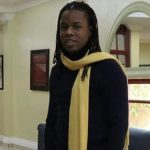
“The benefits are that these persons are able to be more expressive, more authentic, and happy with themselves.
“But they are looking at how they will feel knowing that they’re contributing to something that’s bigger than themselves, but also facing negative implications from their surroundings and the people who contribute to the sport.
“I don’t have that kind of experience as an athlete but I’ve seen where I’ve had to make adjustments to my administrative role in order to assist athletes.
“We’ve lost a lot of athletes with regards to their identification and expression in sports. They’ve migrated or they’ve chosen not to participate, simply because they are afraid of the backlash.”
Gunning acknowledges that acceptance of LGBTQ+ people in Jamaica will continue to be “a slow burner” but he is in it for the long haul, and is determined to do all he can to support activists on the ground.
“Having organisations like J-FLAG and some people in the country who feel able to provide representation and be authentic is so important,” he adds.
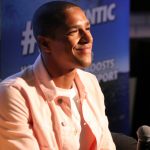
“Pride House is not just for the LGBTQ+ community. I’ll be encouraging all athletes to come, just to check it out – it’s a lovely place at The Loft and there’ll be a really nice buzz around it!”
– Michael Gunning
There is room for optimism, insists Murray, and he cites noticeable changes in dancehall music – so integral to Jamaican culture – as evidence of that.
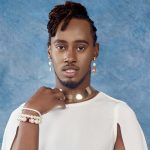
“When I think about growing up here in Jamaica, in the 1990s and early 2000s, queer visibility really existed only on the fringes,” he says.
“There was not a lot of space. There weren’t a lot of open LGBTQ+ advocates, being acknowledged for their work or given opportunity to talk about their issues.
“That increasing visibility, the shift in tone of popular dancehall music here, shows us that we’re making very slow progress.
“The willingness of different stakeholders in government and in the private sector to openly partner with an organisation like J-FLAG shows there is that level of progress too but if I’m honest, a lot of it is centralised in Kingston where we’re based.
“So if you’re in a rural area, growing up in a small town, how do you feel connected to the community and the movement? That’s a big part of the challenge.”
Listen now to episode 4 of ‘The Pride House Podcast’ to get the full conversation between Michael, Glenroy and Orlando – and head over to the Pride House Birmingham website for more information about the venue, how to register interest in volunteering, and related events.
Missed the first three episodes? Read about them and listen here! We also recommend checking out Glenroy’s FishTea Podcast – ‘Jamaican queens talk about the LGBTQ+ politics, pop culture, growing up in the Caribbean, and living our best lives.‘
Sports Media LGBT+ is a network, advocacy, and consultancy group that is helping to build a community of LGBTQ+ people and allies in sport. We’re also a digital publisher. Learn more about us here.
We’re interested in your news and stories. Share with us and tap into a worldwide audience through our Google News affiliate website – which pulled in over one million impressions in 2021 – and our popular social channels with over 10,000 followers. Contact us to discuss how we can help you.
